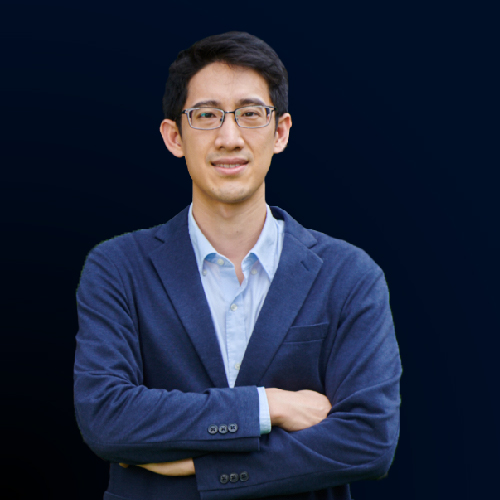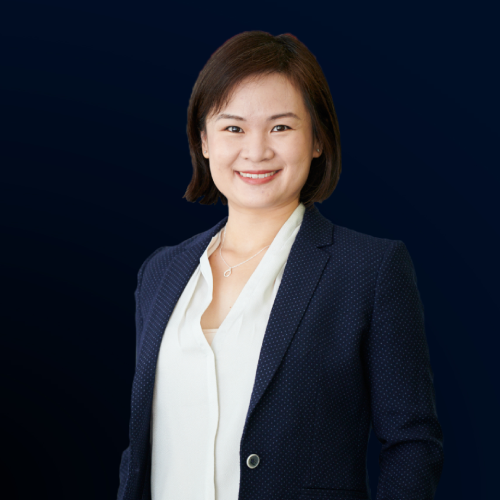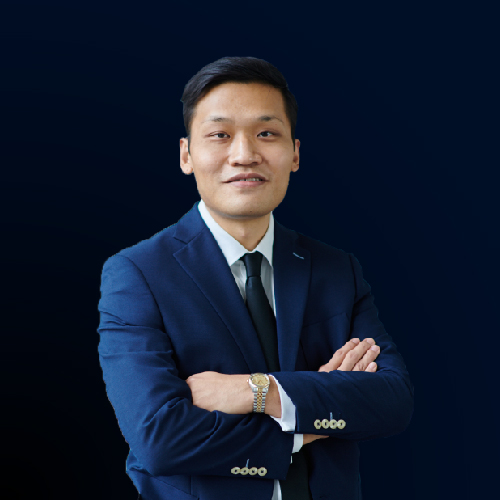Young Scientist Awards 2020
.png?sfvrsn=dc815b99_0)
The Young Scientist Awards (YSA) recognises young researchers, aged 35 years and below, who are actively engaged in R&D in Singapore, and who have shown great potential to be world-class researchers in their fields of expertise. This award is administered by the Singapore National Academy of Science (SNAS) and supported by the Agency for Science, Technology and Research (A*STAR).
There are two categories of Awards, namely:
- Biological and Biomedical Sciences; and
- Physical, Information and Engineering Sciences.
Below are the YSA winners for 2020.
Physical, Information & Engineering Sciences
Dr John Ho
Assistant Professor, Department of Electrical and Computer Engineering, NUS
Principal Investigator, Institute for Health
Biological & Biomedical Sciences
Dr Tan Si Hui
Director, Biology, Cargene Therapeutics
(With A*STAR till Oct 2020)
Dr Chew Wei Leong
Senior Research Scientist, Genome Institute of Singapore, A*STAR
YSA 2020 Ceremony HighlightsThree outstanding young individuals received the Young Scientist Award this year. |
Physical, Information & Engineering Sciences Category
Dr John S Y Ho
Assistant Professor, Department of Electrical and Computer Engineering, National University of Singapore (NUS)
Principal Investigator, Institute for Health Innovation and Technology, NUS
“For his research in developing innovative wireless healthcare technologies”
Dr Ho’s research seeks to develop wireless technologies that address important challenges in medicine and healthcare. His research pursues fundamental advances in electromagnetics and bioelectronics, as well as novel approaches in device engineering and system integration for translational applications. Working closely with life scientists and clinicians, his research aims to apply innovative technologies to demonstrate new approaches to study, diagnose, and treat disease. Some examples of devices developed by Dr Ho and his collaborators include micro-implants that deliver light for targeted cancer therapy, and smart clothing for daily health monitoring purposes.
In the earlier part of his career, Dr Ho’s research focused on wireless power transfer to bioelectronic devices. With his team members, he proposed a theoretical method to deliver power efficiently to implanted micro-devices, and led its experimental validation. This work became the basis for a minimally invasive neuromodulation device that has since been implanted in patients. Since joining the National University of Singapore (NUS) in 2015, he has led a highly interdisciplinary group supported by significant grants from the National Research Foundation (NRF) and Ministry of Education, to develop advanced wireless powering, sensing, and communication technologies for healthcare applications. During the Singapore COVID-19 circuit breaker in 2020, he led the deployment of a wireless remote monitoring system in a worker dormitory.
He has published in leading scientific journals, including Nature Biomedical Engineering, Nature Electronics, Nature Communications, PNAS, and Physical Review Letters. He holds three granted and four pending patents, three of which have been licensed to medical device companies. He has been recognised by many awards, including the NRF Fellowship, NUS Young Investigator Award, MIT Innovator Under 35 Asia, and Forbes 30 Under 30 Asia.
Biological & Biomedical Sciences Category
Dr Tan Si Hui
Director, Biology, Cargene Therapeutics
(Formerly from Agency for Science, Technology and Research)
“For her research on cancer and stem cells for intervention opportunities”
Solid tissue cancers like gastric cancer remain highly prevalent and a leading cause of death, despite recent advances in cancer treatment. Efforts for more tailored diagnoses will enable the practice of precision medicine at the bedside.
Dr Tan’s core research interests are in cancer, stem cells and signalling pathways. More specifically, she applies signalling pathways to the understanding of the behaviours of cancers, cancer stem cells and normal stem cells. Together with her teammates and collaborators, she has identified novel molecular markers to isolate and track normal and cancer stem cells in the stomach. She is also tapping into quantum computing to power an innovative method of personalised cancer diagnosis based on signalling pathways.
Trained as a cancer biologist, Dr Tan studied stem cells and signalling pathways in multiple organs, eventually homing into gastric stem cells and cancer. Here, she established Aquaporin-5 (AQP5) as a novel stem cell marker which can be used to isolate human gastric stem cells for the first time, opening up the potential for stomach therapies and in-depth studies of these human stem cells. AQP5 may also be a marker of gastric cancer stem cells, which fuel tumour growth, an exciting prospect that would pave the way for specific therapeutic targeting of gastric cancer stem cells. She is also co-developing a proprietary AI platform that diagnoses patients’ cancers based on a suite of signalling pathway statuses with a local quantum computing start-up, Entropica Labs.
Dr Tan’s work has been published in Nature, Science, Nature Cell Biology, as well as a chapter in the book, Progress in Molecular Biology and Translational Science. She is also a recipient of the Young Individual Research Grant (Principal Investigator), the Individual Research Grant and Target Translation Consortium (co-Investigator), and the National Science Scholarship. Dr Tan is enthusiastic about mentoring and working with biotech startups, having volunteered at Biotech Connection Singapore. Formerly a research scientist in Prof Nick Barker’s lab at A*STAR’s Institute of Molecular and Cell Biology, Dr Tan is now leading a research team in a local biotech start-up, Cargene Therapeutics, to deliver impactful treatments from bench to the bedside.
Biological & Biomedical Sciences Category
Dr Chew Wei Leong
Senior Research Scientist, Genome Institute of Singapore, Agency for Science, Technology and Research
“For his work in gene editing therapy”
Dr Chew Wei Leong invents technologies to make pinpoint changes to genes. His research encompasses novel DNA and RNA-editing modalities (Clustered Regularly Interspaced Short Palindromic Repeats CRISPR-associated systems, also known as CRISPR-Cas1 that include Cas9, Cas12, and Cas13), gene therapy delivery vectors (adeno-associated viruses or AAVs), and synthetic biology.
Dr Chew contributed seminal works to gene editing. He pioneered disease gene correction and gene expression control with CRISPR-Cas9 in the body. These technologies open up therapeutic avenues against multiple diseases, including severe inherited diseases, viral infections, blood disorders, eye diseases, and cancers.
Dr Chew’s team has been building foundational technologies, including new genome-editing systems for precise edits in the human genome, nucleic acid detection and manipulation tools, as well as high-throughput molecular discovery and engineering platforms that generate new CRISPR-Cas proteins and AAV vectors. Importantly, his work is the first to show that CRISPR-Cas is immunogenic within the body and that it is possible to predict and negate such adverse immune reactions. Dr Chew’s research programme innovates in transformative nucleic acid therapeutics so that these medicines can be safe and efficacious in the clinic.
Dr Chew and his team have contributed numerous patent applications, inventions, and other intellectual properties in the fields of genome engineering and biotechnology. Some of these have gone on to be licensed to multinational corporations and form the technological foundations for new local startups. Dr Chew’s work has been published in journals such as Science, Nature Methods, Nature Biomedical Engineering, and Nature Communications and shared more broadly as publicly accessible pre-prints on bioRvix. He is also active in international consortia, bioethics advisory groups, and public outreach. Dr Chew has obtained competitive research funding in the areas of synthetic biology, gene editing, oncology, infectious diseases, and biotechnology.
A*STAR celebrates International Women's Day

From groundbreaking discoveries to cutting-edge research, our researchers are empowering the next generation of female science, technology, engineering and mathematics (STEM) leaders.
Get inspired by our #WomeninSTEM



